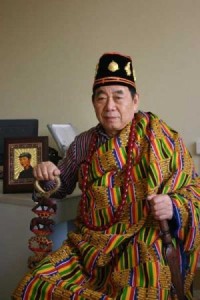The Telegraph | 17 Feb 2008
By Richard Spencer in Dongying Village
China has sent hundreds of thousands of workers to Africa to exploit its natural resources.
An estimated 750,000 mainly rural poor have moved there as part of the Chinese government's policy of economic engagement with the continent.
They are working on projects to build railways, construct electricity grids and even farm the land.
But officials want more of China's surplus rural population of tens of millions of people to follow them, saying they will earn money and help the continent to develop.
The tide of Chinese immigrants runs alongside the wave of business investment in the continent's mineral resources, controversially including deals with "pariah states" such as Sudan.
Dong Zhihai, a carpenter, left his farm in Dongying, near the city of Baoding 150 miles south of Beijing, in May 2005 to help build an electricity grid in Sudan.
"I went to earn more money," he said.
He made about £100 a month on building sites in Beijing, but earned almost three times that in Melowe, near Khartoum, where a Chinese company was building a large dam.
Several of the 12 men recruited from Mr Dong's village have stayed to make their fortunes.
Li Ruogu, the head of China's Export-Import Bank, recently appealed for the country's vast and under-employed rural workforce to head for Africa to make their fortunes.
"Africa has many countries with plenty of land, but food output that is not up to expectations," he said in Chongqing, a metropolis in a region of south-west China where urban growth is forecast to displace 12 million people in the next decade.
"There's no harm in allowing farmers to leave the country to become farm owners."
It might seem strange that impoverished African farmers would want help from impoverished Chinese farmers.
Yet there are now a growing number of schemes under which Chinese companies lease tracts of the African countryside and move farmers out to till it.
Liu Jianjun, a former government official who runs the Baoding-Africa business council, said: "We found local people lacked farming skills. Here in China on the other hand we are fast developing our industry, so many farmers no longer had land. The exchange was beneficial to both sides."
Mr Liu has taken businesses across the continent. He has contracts to farm 10,000 acres in Uganda, to build a cornflour processing factory in Kenya and for a farm project in the Ivory Coast.
Though Chinese business is considered to be propping up dictators with whom the West will not work, Abdoulaye Wade, the president of Senegal, said during last year's EU-Africa summit that China offered better value.
"Europe has nearly lost the battle of competition in Africa," he said.
"With the price of one European car you can buy two Chinese cars."
Within eight years trade between China and Africa has grown from $2-$3 billion a year to $55 billion a year.
After spending his earnings on getting married and house improvements, Mr Dong is looking for his next job.
"I am hoping to go to South Africa," he said. He will not be alone. At the last count, 200,000 of his fellow countrymen were already there.














